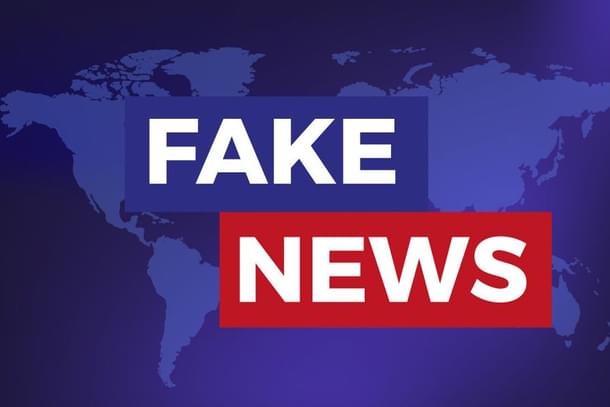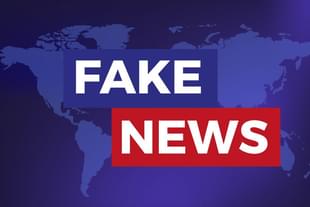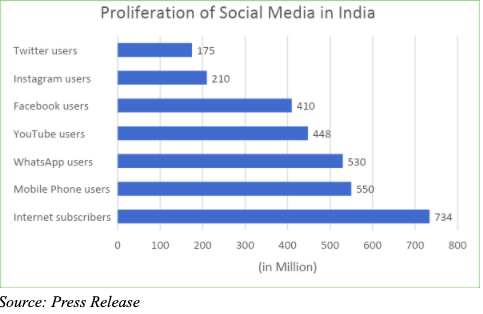Ideas
Singapore Has A 'Fake News Law'; What Are The Arguments For A Similar Legislation In India?
Ritu Bhandari
Jun 22, 2021, 10:14 PM | Updated Jun 23, 2021, 09:59 AM IST
Save & read from anywhere!
Bookmark stories for easy access on any device or the Swarajya app.


Colloquially known as 'Fake News Law', The Protection from Online Falsehoods and Manipulation Act (POFMA) is a statute that enables authorities to tackle the spread of fake news or false information. Parliament of Singapore enacted POFMA, which came into effect from October 2019.
The Act applies to any "material" that consists of or contains a false statement. For example, a message, a post, an article, a speech, a picture, a video recording or a sound recording. A false statement is one "if it is false or misleading, whether wholly or in part, and whether on its own or in the context in which it appears".
The Act covers any made available statements to one or more end-users in Singapore via the internet, SMS or MMS. The platforms include social media platforms, such as Facebook, Twitter, Google, and other online closed groups such as private chat groups and social media groups.
The law allows authorities to respond to fake news through a graduated process of fact-checking statements, censorship of website or social media platforms, and penalisation with criminal charges.
The ministers issue instructions to correct fake news through an appointed Competent Authority. A Correction Direction may be sent out to a spreader of fake news, instructing the person to place a notice stating that the statement was found to be false and a correction of the false information. A Stop Communication Direction may be issued, instructing the person to disable access of the false statement to end-users in Singapore by a specific time.
To deal with fake accounts and bots, an Account Restriction Direction may be issued to order an internet intermediary to shut down any fake accounts and bots on its platforms and prevent the accounts' owners from interacting with end-users in Singapore.
For example, a Correction Direction was issued to Alex Tan in November 2019 to place a correction notice on fake news in a post on the Straits Times Review's Facebook page alleging that People's Action Party would field a Christian evangelist as a candidate in the upcoming elections to garner support from the Christian community and possibly turning Singapore into a Christian state and that a whistleblower was arrested and would be charged for "fabricating fake news".
The claims were found to be false and baseless. However, Tan did not intend to comply, saying that he is no longer a Singapore citizen and now lives abroad.
This resulted in a Targeted Correction Direction being issued to Facebook to place the correction notice on the Facebook post. Facebook was then mandated to disable Singapore users' access to Tan's pages. Facebook complied, however, with concerns that "blocking orders such as this are severe and risk being misused to stifle voices and perspectives on the internet".
The month of the 2020 general election (July 2020) saw the greatest number of POFMA uses per month since the law's introduction. Notably, between July 2020 and April 2021, there was an eight-month period in which no POFMA uses were recorded.
On 20 May 2021, POFMA was invoked to have Twitter and Facebook carry a notification with a correction notice to "all end-users in Singapore" regarding fake news about a "Singapore Variant" of COVID-19.
False Propaganda
India has a propensity for the rapid spread of fake news and rumours due to widespread internet subscribers and mobile phone penetration with a high number of social media users on Whatsapp, Youtube, Facebook, Instagram, Twitter etc.

India has been a victim of much false propaganda, which has led to serious ramifications for the country. We have seen on multiple occasions that propagandist are the loudest who seek to overwhelm the silent truth. False propaganda has sought to drive the narrative and overwhelm any reform measure.
Any reform will hurt some vested interest groups. Vested interest along with political opposition (who will oppose anything and everything) and at times inspired by unfriendly foreign forces (Greta Thunberg and Rihanna for their infamous tweet supporting farmer protests) will almost always overwhelm the slow, bumbling government bureaucracy, which is generally wary of propaganda.
For example, the misinformation of discontinuation of Minimum Support Price (MSP), despite repeated assurances by the government, has derailed the Farm Laws.
Recently a First Information Report (FIR) was lodged against Congress MP Shashi Tharoor and other senior journalists for falsely tweeting that the Delhi Police had shot at a protesting farmer riding the tractor during the farmers' tractor rally on Republic Day. It was clarified with CCTV footage that he died after his tractor rammed into the police barricade and turned turtle. Moreover, the forensic report showed no bullet injuries on the body of the protestor.
When President of India unveiled the portrait of Netaji Subhas Chandra Bose at Rashtrapati Bhavan to commemorate his 125th birth anniversary celebrations, Trinamool Congress MP Mahua Moitra, journalists Barkha Dutt, Sagarika Ghose, etc., falsely ridiculed that the portrait was not of Netaji but that of Bengali actor Prosenjit Chatterjee, who had played the role of Netaji in a film, despite government sources reiterating that the portrait was indeed that of Netaji.
Misinformation related to the coronavirus pandemic has been rampant with social media messages on home remedies that have not been verified, fake advisories and conspiracy theories have contributed to vaccine hesitancy.
Recently, Delhi Chief Minister Arvind Kejriwal had made a false claim that a 'Singapore variant' of Covid-19, which is "very dangerous" for children, could herald a 'third wave' in India. Thus we must stop all flights with Singapore.
The Foreign Affairs Ministry (MFA) had hit out at him for making false claims without checking the facts and also debunked the social media assertions. In recent weeks, the strain prevalent in many of the Covid-19 cases is the B.1.617.2 variant, which was first detected in India. Singapore has threatened to invoke POFMA against Kejriwal.
The Question Of Freedom Of Speech And Expression
Article 19(1) of the Constitution of India guarantees Freedom of Speech and Expression. It is pertinent to note that the above right is not absolute and has certain limitations such as matters that are against foreign relations, public policy, integrity and sovereignty of the State, decency and morality, public order, etc., as mentioned in Article 19(2) of the Constitution of India. Freedom of Speech is not freedom to speak lies.
POFMA is controversial and has received criticism both locally and internationally by opposition politicians, human rights groups, journalists and academics. There were concerns that the Act would enable authorities to suppress criticism and dissent.
However, safeguards are required to curb fake news. An Indian version of POFMA will act as a deterrent to mischief mongers spreading fake news in India. Fake news, when not debunked, can derail reforms, create false narratives, blemish reputations and can potentially create unrest or mob violence in society. It is about time India has its version of POFMA to counter the false narratives.





